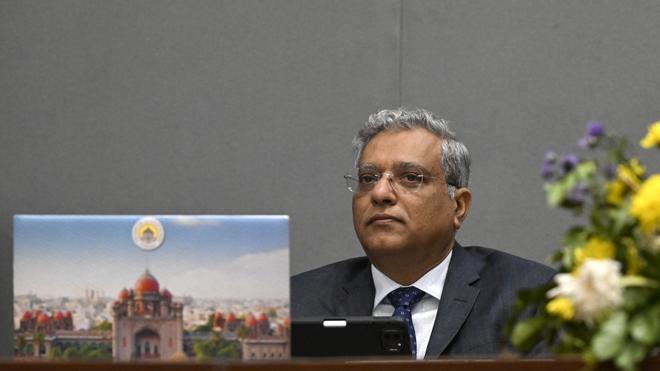We need institutions that can hold officials accountable: SC judge
“The constitutional vision or preambular objectives cannot be realised if we do not invest time and effort in working our institutions. Working out institutions is effective, if not the only, way of working our constitution,” said Supreme Court Justice P.S. Narasimha while delivering the second Justice E.S. Venkataramiah Centennial Memorial Lecture on Sunday on the topic Reimagining Constitutional Institutions: Integrity, Efficiency, and Accountability.
At the lecture organised by the National Law School of India University (NLSIU), he discussed the importance of Fourth-Branch Institutions (apart from Legislation, Executive, and Judiciary) recognised by the Constitution, such as the Election Commission, Comptroller and Auditor General, Public Service Commissions, and other Statutory bodies.
While looking at ‘Institutions’ in the context of separation of powers, Justice Narasimha noted that the traditional three branches have clearly demarcated constitutional spaces for themselves.
“There is a contestation as to the custody of Constitutional spaces, but that only underlines that there is a system of checks and balances. Within these contested spaces, no one branch may be equipped to constantly review, audit and assess the performance of the other. We need other institutions or procedures which can make the traditional branches accountable, accessible and open to the citizenry. The citizenry is entitled to ask questions of the traditional branches and receive replies in an accountable fashion,” he said.
“We need institutions that can withstand political tribulations, hold power-wielding officials accountable and ensure a smooth democratic process,” he added. Such institutions are what are being called Fourth Branch Institutions.
Justice Narasimha listed capacity failure, infrastructural failures, lack of autonomy, enforcement failures, political interference, overlapping mandates and lack of coordination among institutions as the “six non-exhaustive reasons as to why institutions don’t deliver or underperform.”
Published - December 22, 2024 08:42 pm IST







)

















